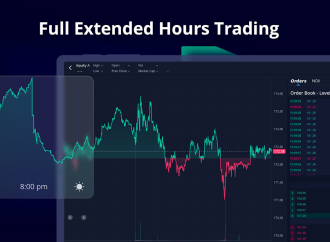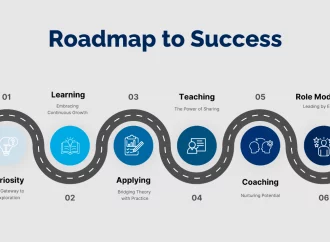Homebuyers come in all shapes and sizes, but what do they have in common? They all make decisions that are influenced by their unique psychological makeup. From the way they search for properties to how they eventually choose to purchase, understanding the psychology of homebuyers is an integral part of marketing your properties effectively. In
Homebuyers come in all shapes and sizes, but what do they have in common? They all make decisions that are influenced by their unique psychological makeup. From the way they search for properties to how they eventually choose to purchase, understanding the psychology of homebuyers is an integral part of marketing your properties effectively. In this blog post, we’ll be taking an in-depth look at buyer behavior—what drives them and why. We will take a closer look at the various aspects of buyers’ decision-making process and how you can use that knowledge to help put your property listings ahead of the competition.
The Stages of the Homebuying Process
The homebuying process typically consists of several stages, from initial interest and research to making an offer and closing on the property. Here is a brief overview of each stage:
1. Initial interest and research: Buyers usually become interested in purchasing a home when they are ready to make a change in their living situation – such as getting married, starting a family, or moving for work. They begin researching their options online and may visit open houses or model homes to get a better sense of what they want.
2. Financing: Once buyers have decided on a general price range and type of home they are interested in, they will need to get pre-approved for a mortgage loan. This step is important in order to know how much money they can realistically afford to spend on a home.
3. Home search: With financing in place, buyers can start their search for the perfect home in earnest. They may work with a real estate agent to help them find properties that match their criteria.
4. Making an offer: Once buyers have found a home they want to purchase, they will need to make an offer to the seller. The offer will include the purchase price as well as any other conditions of the sale, such as repairs that need to be made or furniture that will be included with the sale.
5. Negotiation: After an offer has been made, there is usually some back-and-forth negotiation between the buyer and seller
The Emotional Drivers of Homebuyer Behavior
It’s no secret that emotions play a big role in the homebuying process. After all, a home is one of the biggest purchase most people will make in their lifetime. So it’s natural for buyers to feel a range of emotions when they’re searching for a new home.
Fear, excitement, happiness, and even sadness can all factor into the decision-making process. And while every buyer is different, there are some common emotional drivers that can influence behavior.
One of the most powerful emotions in the homebuying process is fear. Fear of making a bad investment, fear of not finding the right home, or fear of being stuck in a situation you don’t want to be in can all drive buyer behavior.
Excitement is also a major factor. The thrill of finally finding your dream home or getting into a bidding war can push buyers to make impulsive decisions. It’s important to remember that excitement can quickly turn to regret if you let it override your better judgement.
Happiness is another emotion that can play a role in buyer behavior. The joy of moving into a new home or the satisfaction of finding just the right property can lead buyers to overlook potential problems or red flags. Again, it’s important not to let your emotions get the best of you and really evaluate all aspects of the property before making an offer.
Sadness can also come into play when buyers are looking at homes. The sadness of leaving a beloved family home
The Role of Trust in the Homebuying Process
When it comes to making such a large purchase, homebuyers must be able to trust both their real estate agent and the process itself. In today’s digital age, there are a lot of moving parts to the homebuying process and it can be easy for buyers to feel overwhelmed. A good real estate agent will help guide their clients through each step of the process, instilling confidence along the way.
One of the most important aspects of the homebuying process is getting pre-approved for a mortgage. This is where buyers will learn how much they can afford to spend on a new home. Buyers must be honest with their lender about their financial situation in order to get an accurate pre-approval. Once buyers have been pre-approved, they can start attending open houses and touring homes that fit their budget.
The role of trust is also important when it comes to negotiating the purchase price of a home. Buyers must trust that their agent is looking out for their best interests and working to get them the best deal possible. It’s important to remember that agents are experienced negotiators and have likely seen it all when it comes to haggling over price. buyers should also be aware of any red flags that may come up during negotiations, such as the seller being unwilling to budge on price or making unreasonable demands.
If all goes well, buyers will eventually find themselves in escrow, where they’ll put down a deposit and begin the final steps
The Impact of Social Media on Homebuyer Behavior
The Impact of Social Media on Homebuyer Behavior
The internet has drastically changed the way we live and behave. In particular, social media has had a profound impact on our behavior, including the way we make purchase decisions.
A recent study by the National Association of Realtors found that social media is now the second most important source of information for homebuyers, after referrals from friends and family. The study found that 45% of buyers used social media in their home search process, and that those who did were more likely to be younger, first-time buyers.
Interestingly, the study also found that social media had a greater impact on the behavior of buyers who were not working with a real estate agent. This suggests that social media can be a powerful tool for reaching and influencing potential homebuyers who may not be working with an agent.
There are many ways to use social media to reach and influence homebuyers. For example, real estate professionals can use social media to share listings, open houses, market reports, and other relevant information with their followers. They can also use social media to build relationships with potential buyers and stay top-of-mind when they’re ready to start their search.
agents should also keep in mind that potential buyers are using social media to do research on neighborhoods, schools, and local businesses before they even start looking at homes. So it’s important to make sure your online presence accurately reflects
How to Use Psychology to Win at Real Estate
Homebuyers are often irrational, emotional creatures. To win at real estate, you need to understand how to appeal to their psychological triggers.
Here are a few tips:
1. Play up the sense of community in your listings. Homebuyers want to feel like they belong somewhere, and will be more likely to purchase a property that seems like it would offer that.
2. Use words and images that evoke positive emotions. This will help potential buyers envision themselves in the home, and make them more likely to put in an offer.
3. Highlight the security of the neighborhood and the home itself. Buyers want to know that they’ll be safe in their new home, so stressing these points can be helpful.
4. Make sure your listing photos are high-quality and show the property in its best light. First impressions matter, so give buyers something impressive to look at from the start.
By following these tips, you can use psychology to your advantage and increase your chances of success in the real estate market.
Conclusion
Understanding the psychology of homebuyers is essential if you want to be able to successfully market and sell properties. The insight we have provided into buyer behavior will help you craft more effective marketing strategies for your real estate business. Keeping up with current trends in the housing market, such as demographic changes and shifting preferences among buyers, will also go a long way towards helping you stay one step ahead of potential buyers. With this knowledge at your fingertips, selling property has never been easier!





















Leave a Comment
Your email address will not be published. Required fields are marked with *